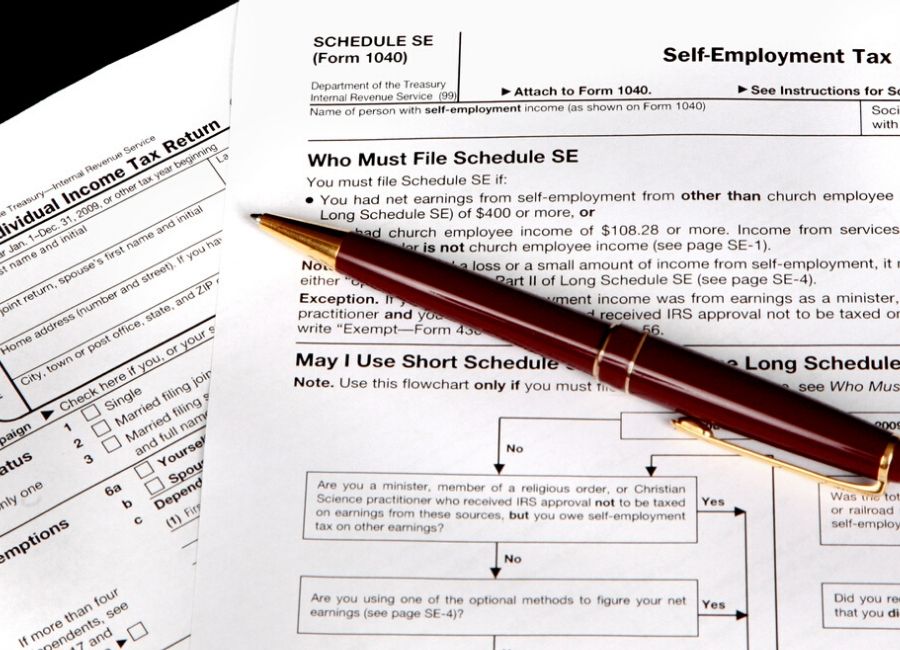The days of one source of income are long gone! To reach their financial goals, more and more people are setting up side hustles to make more money – and for good reason! Between student loan debt, rent, and enjoying life, the more money you make, the easier things can be for you. You just need to be mindful of the connection between side hustles and taxes!
While I’m all for a good side hustle, I’m also all for understanding what that means from a tax perspective. I’m sharing what you need to know about side hustles and taxes, so you can prepare yourself and not be caught off guard by the IRS. Trust me, no one wants to be caught off guard by them
Side Hustles and Taxes
First things first…
Know your tax bracket. Tax brackets show you the tax rate you’ll pay on each portion of your income. As of 2020, there are 7 tax brackets. The more money you make, the more taxes you’ll pay. When you know your current tax bracket, you can have an idea of the amount of savings from your side hustle you should put away for extra tax payments.
Not only do business owners and side hustlers pay income taxes, they also pay self-employment taxes. Basically, when you work for someone, you’re only paying your portion of the taxes. The employer is covering the other half of taxes on your behalf, because they own the business.
When you’re self-employed, you have to cover everything – income and self-employment taxes. This isn’t a big deal when you’re in the side hustler stage, but you’ll want to keep this in the back of your head. Business may boom one day!
Track your income and expenses
When you work for someone else, you don’t have to keep track of the income you earn. Your employer sends it to you in a W-2 at the end of the year. It’s not the same when you have your own business or side hustle. You have to keep track of the income you make! You also need to keep track of the expenses that come with running your side hustle.
These expenses will help lower your overall tax bill. The IRS looks at net income when calculating taxes. Net income is the total cost of profit after all expenses are taken out. For example, let’s say you earned $10,000 in revenue from your side hustle last year. Let’s say you spent $5,000 to cover expenses associated with the side hustle. That means your net income is $5,000 ($10,000 – $5,000). You will be taxed on the $5,000 net income.
This is why it’s so important to keep good records. Most people don’t get audited by the IRS, but if they ever come asking for proof of your income and expenses, you’ll want to make sure you have it. Otherwise, you could be adding another layer of non-necessary complexity and stress to your life and side hustle.
Payers report most income to the IRS
Depending on the type of side hustle you have, you may receive 1099’s from those you do work for. If you’re a freelancer or independent contractor, this is definitely the case. So, what does that mean? It means that if someone pays over $600 in the course of a year for your services, they are required to report the income they paid you to the IRS (in the form of a 1099).
You should receive copies of 1099s that are submitted to the IRS. This means that you’ll need to report that income on your own tax return. This is where it’s important to keep good records and be honest. If you don’t report income, even though you were sent a 1099, the IRS will catch it. They may or may not do anything, but is it worth the risk?
TurboTax states, “Payers should send out 1099 forms by Jan. 31 that state the dollar amount you earned. But, even if you don’t receive this form, you still have to report your earnings. For example, in 2019, if you earned less than $600 from a side gig, the payer doesn’t have to send you a 1099 form, but you still have to report the earnings.”
Consider working with a CPA
Depending on the complexity of your side hustle, and how much you make and spend from it, you may want to consider working with a CPA. Don’t get me wrong, I love TurboTax. But, some things are better left to the professionals. If you’re making more than you expected or things are a bit more complex, you’re better off investing in a CPA.
A CPA will help ensure your tax bill is as low as possible, and they can help make sure there are no errors with your reported income, expenses and deductions. Having that peace of mind makes a big difference. If your financial situation doesn’t change much with your side hustle, then continue on with TurboTax. They do have different options that help you provide the most accurate information.
Follow Profit First
The book/process Profit First changed the game for my business. It basically suggests taking profit out first and allocating your revenue by percentages to certain categories. Even if you don’t expect much from your side hustle, this is a great process to start implementing. The more money you make with your side hustle, the easier it will be for you to manage…following this process.
Profit First also recommends having specific accounts for your categories. One account being Taxes. This is a great strategy so you don’t intermingle your funds. Your appropriate tax amount goes into the Taxes account and is only used for taxes. This will make your annual tax filing process so much smoother. Not to mention, you’ll already have the money handy!
If you’re struggling to allocate your income properly (business income or not), schedule a free financial focus call with me now and let’s work through it together!
Related: 10 Lessons Learned After 4 Years in Business
Don’t let taxes trip you up and prevent you from starting your side hustle! The points above are the main things you need to know about side hustles and taxes. Having this understanding already puts you ahead of the game! Were taxes delaying the start of your side hustle? How do you manage the taxes for your business? Drop a comment below to share!





